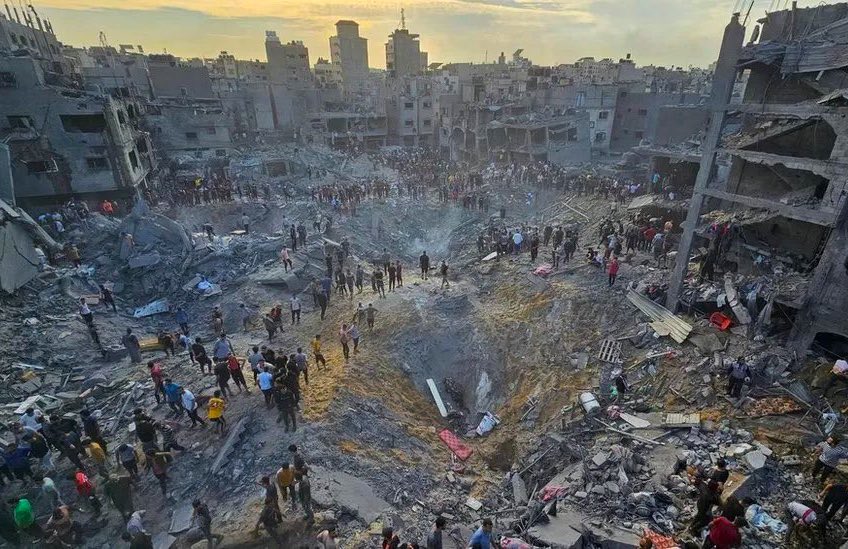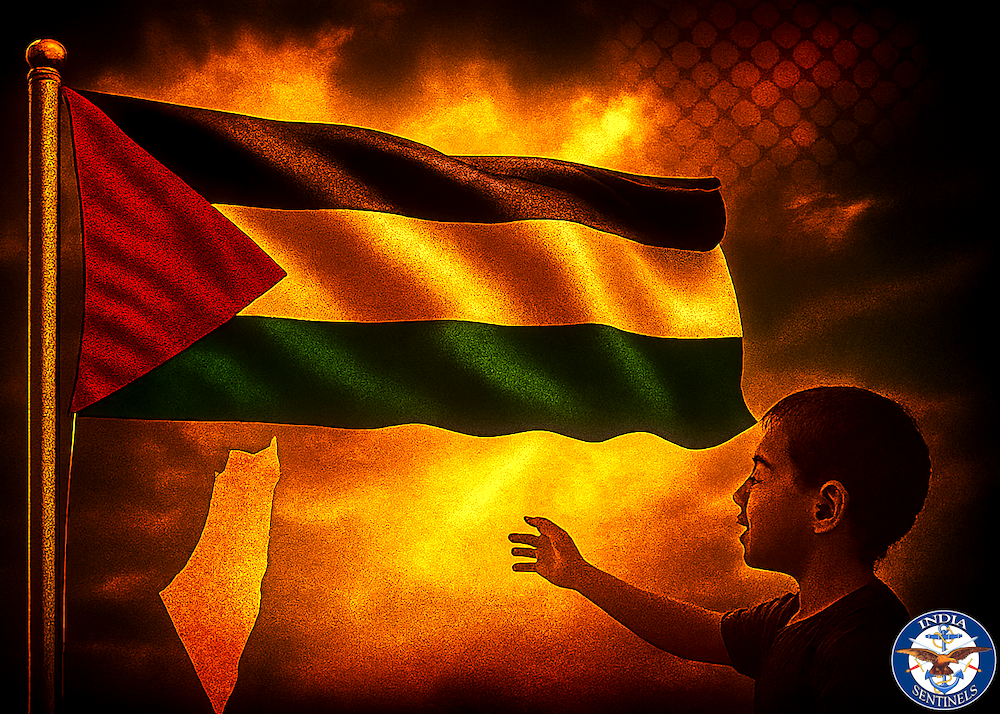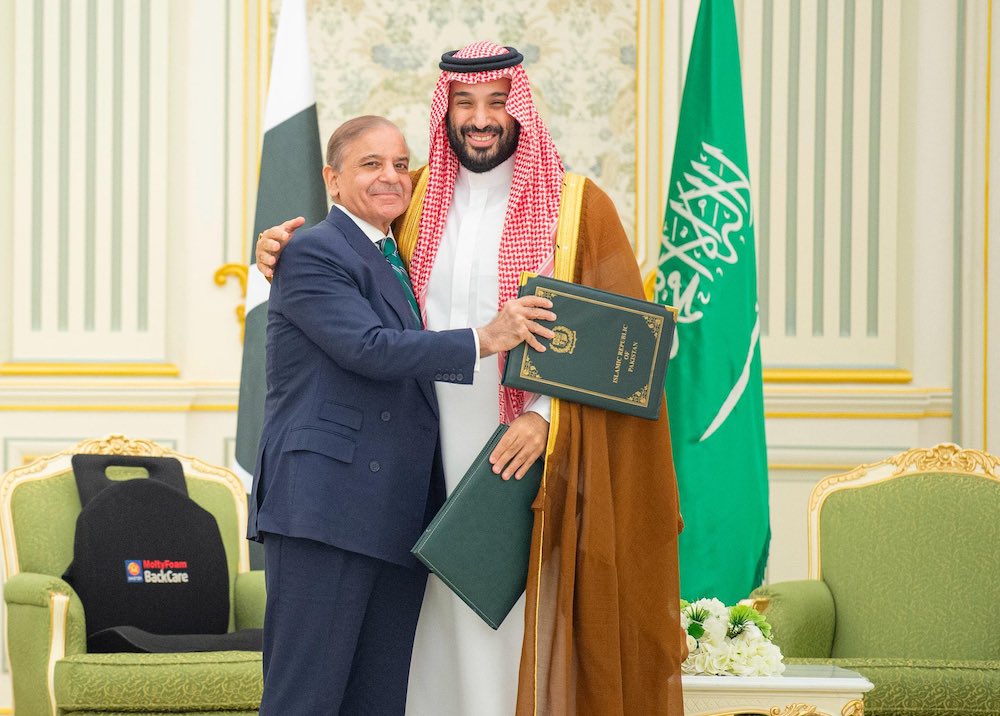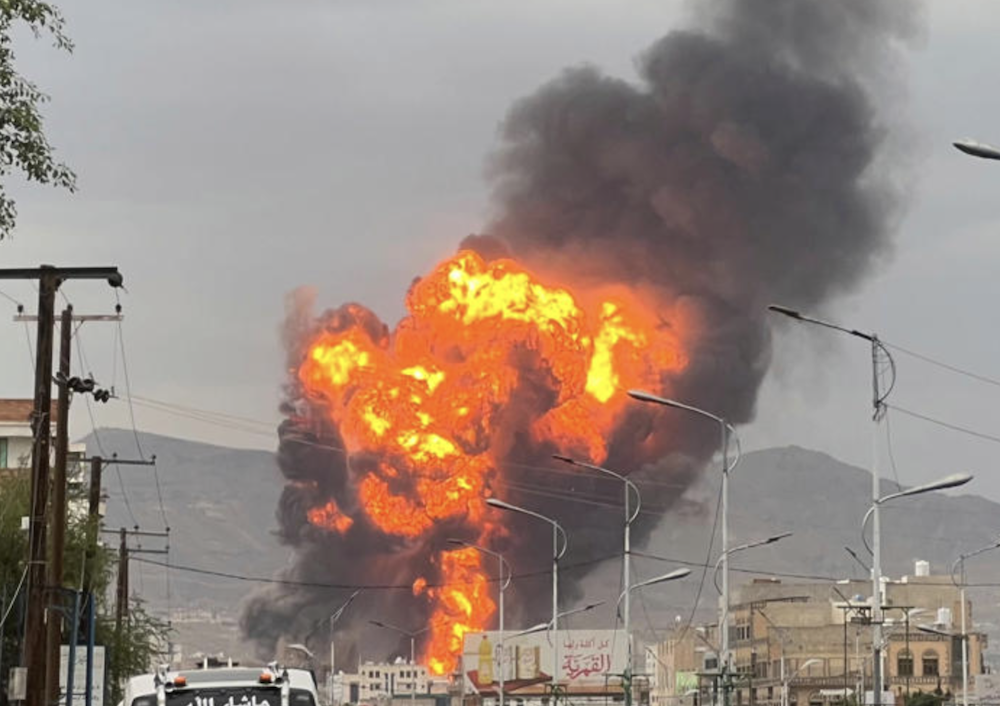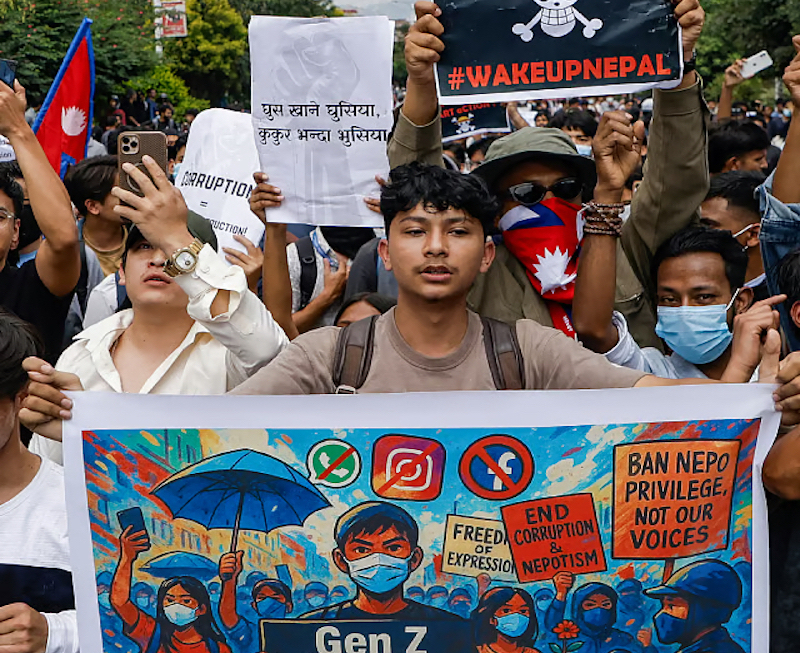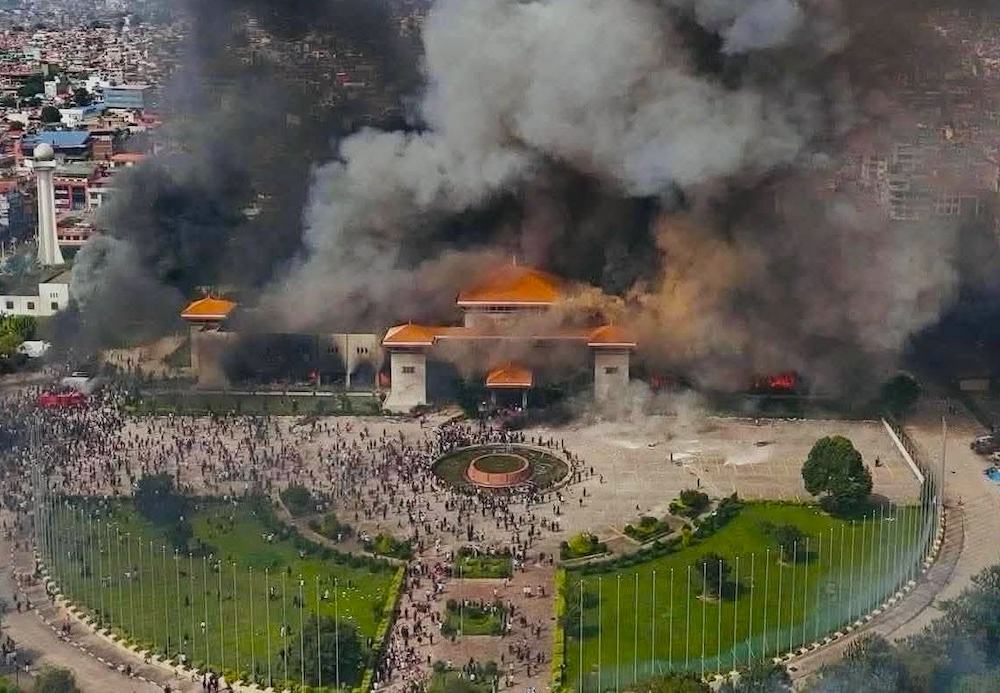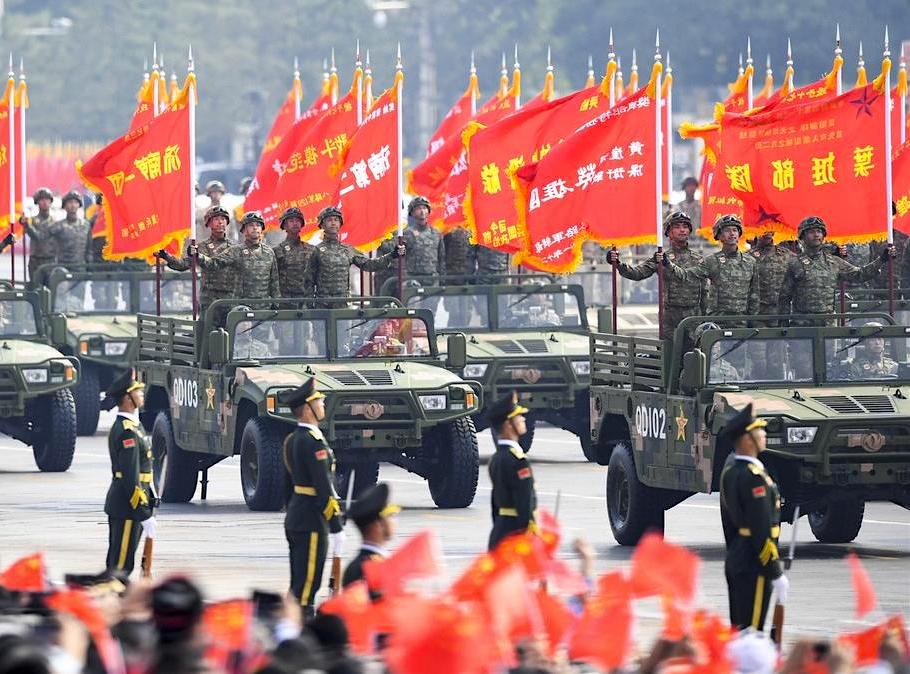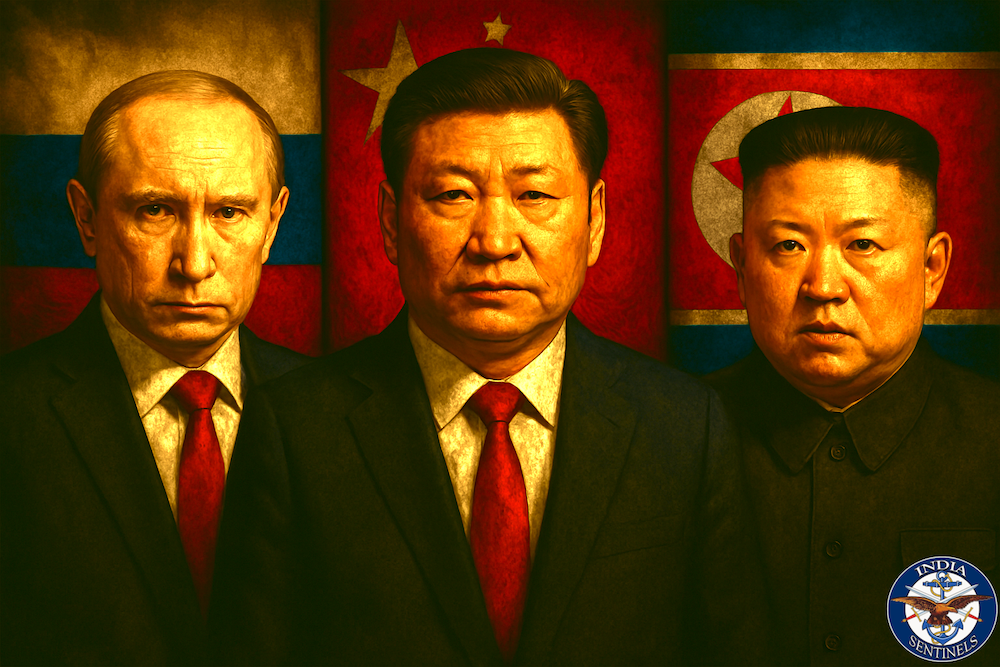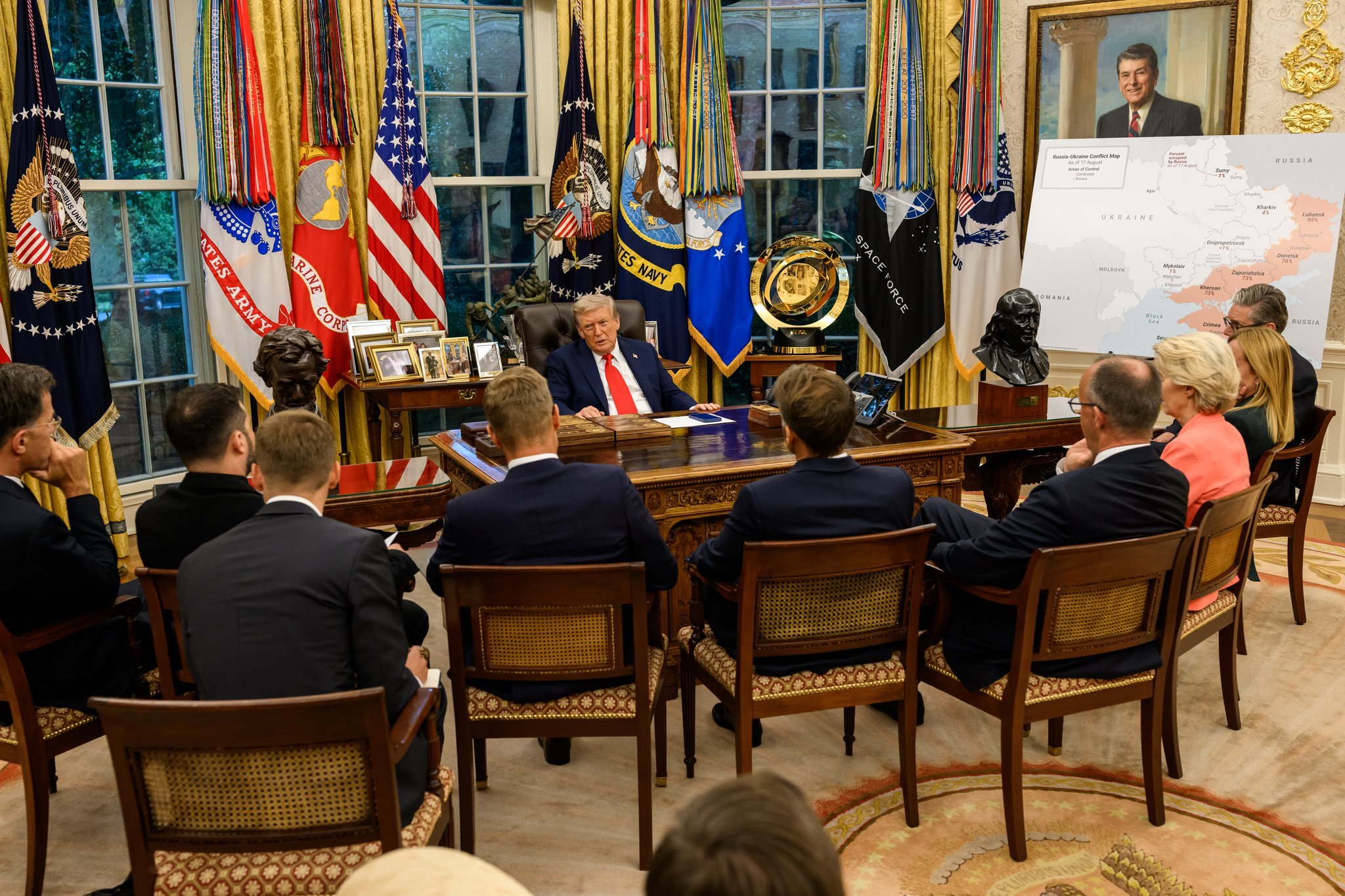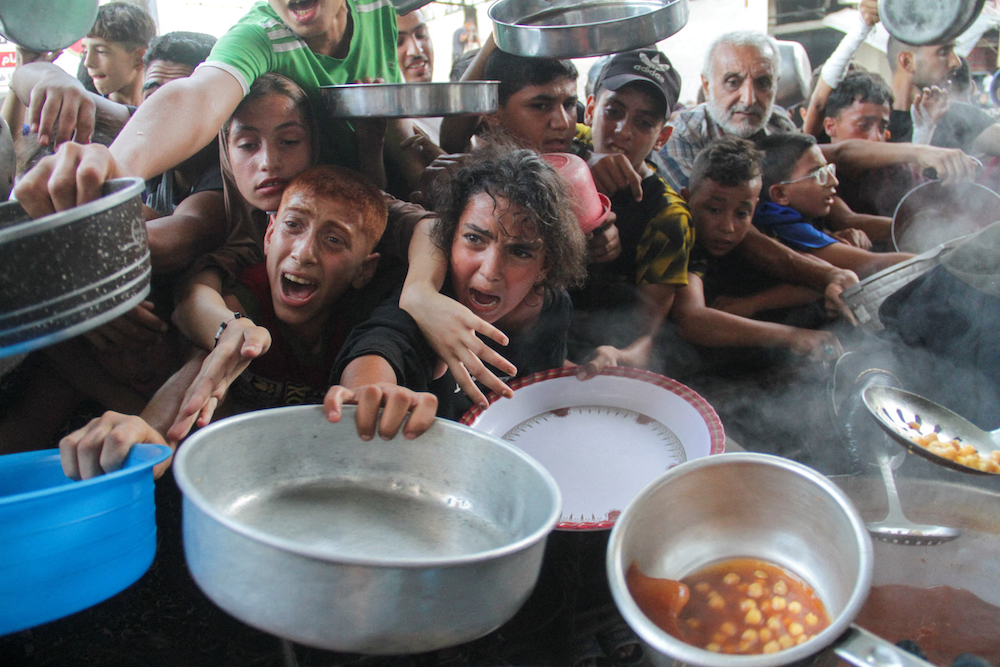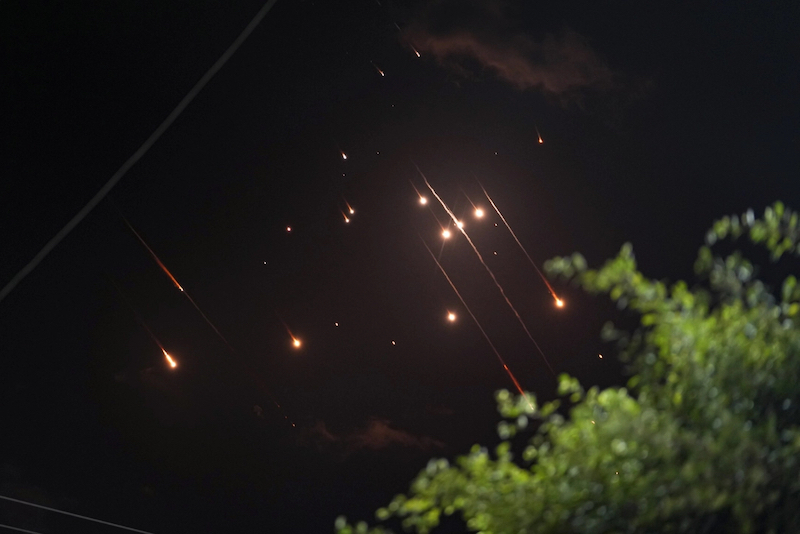 This screenshot from a video clip shows Israeli anti-missile systems trying to intercept incoming Iranian missiles.
This screenshot from a video clip shows Israeli anti-missile systems trying to intercept incoming Iranian missiles.
New Delhi: Iran launched a significant missile attack against Israel, on Tuesday night, firing approximately 180 to 200 ballistic missiles in retaliation for the assassination of high-profile figures including Hezbollah leader Hassan Nasrallah, Hamas leader Ismail Haniyeh, and Iranian Revolutionary Guard Corps (IRGC) commander Abbas Nilforoushan. This attack marks a major escalation in the ongoing tensions between the two nations and follows Iran’s earlier missile and drone strike against Israel in April, as India Sentinels had reported.
The missile attack is seen as a demonstration of Iran’s military capabilities and a show of support for its allied groups in the region.
The Iranian strikes targeted various locations across Israel, prompting immediate warnings for civilians to seek shelter. This prompted millions of Israeli citizens to take refuge in bomb shelters across the country, especially in the cities.
The missiles reportedly struck a building in northern Tel Aviv, while the Israeli air defence systems, including the Iron Dome, successfully intercepted many of the incoming projectiles. One of the missiles landed just a few hundred feet from the headquarters of Israel’s foreign intelligence agency, Mossad, which is built in a thickly populated area.
Israeli officials responded by labelling the attack a “serious act” and vowing to retaliate at a time and place of their choosing. The Israeli prime minister, Benjamin Netanyahu, emphasized that Iran had made a “big mistake” and would “face consequences” for its actions.
In a statement, the IRGC linked the missile barrage directly to the killings of its affiliates in the region, framing it as a legitimate response to “terrorist acts” carried out by Israel. Iran’s mission to the United Nations described the operation as a rational measure of self-defence, warning that further Israeli aggression would lead to a “crushing response” from Tehran.
This recent assault follows a significant period of heightened tension, including a limited ground incursion by Israeli forces into southern Lebanon. The United States government was quick to respond, with its president, Joe Biden, directing military resources to assist Israel, including interception efforts during the missile attack. The US has reiterated its commitment to Israel’s defence, with additional forces being deployed to the Middle East.
Hamas has publicly praised the Iranian missile strikes and called Iran’s action as an act of revenge for the recent assassinations, which it described as the blood of “heroic martyrs”.
According to several geopolitical observers, the Iranian missile attack represents a critical moment in the ongoing conflict, reflecting both the depth of the enmity between Iran and Israel and the potential for broader military engagement in the region. However, they also said if Israel doesn’t retaliate, the situation may still have some room to diffuse.
Nonetheless, the situation remains fluid, with both sides on high alert for further developments.

